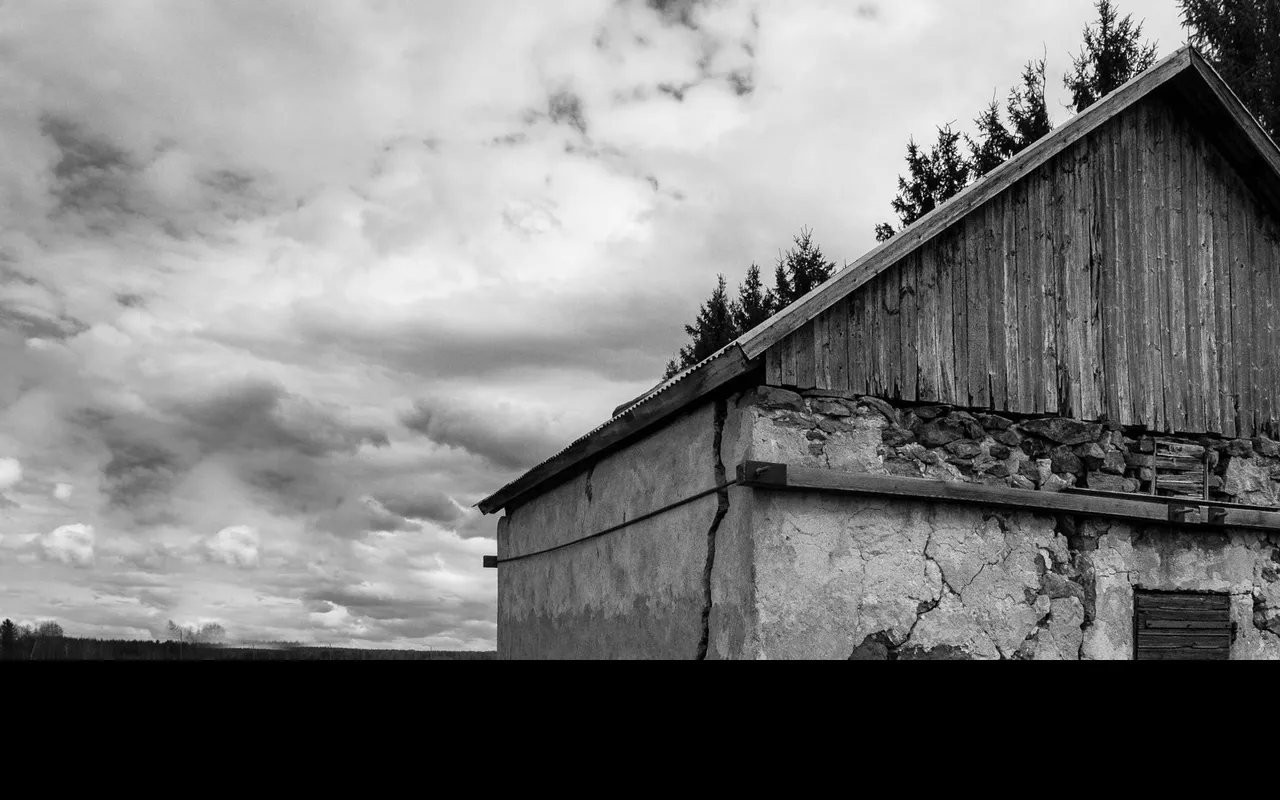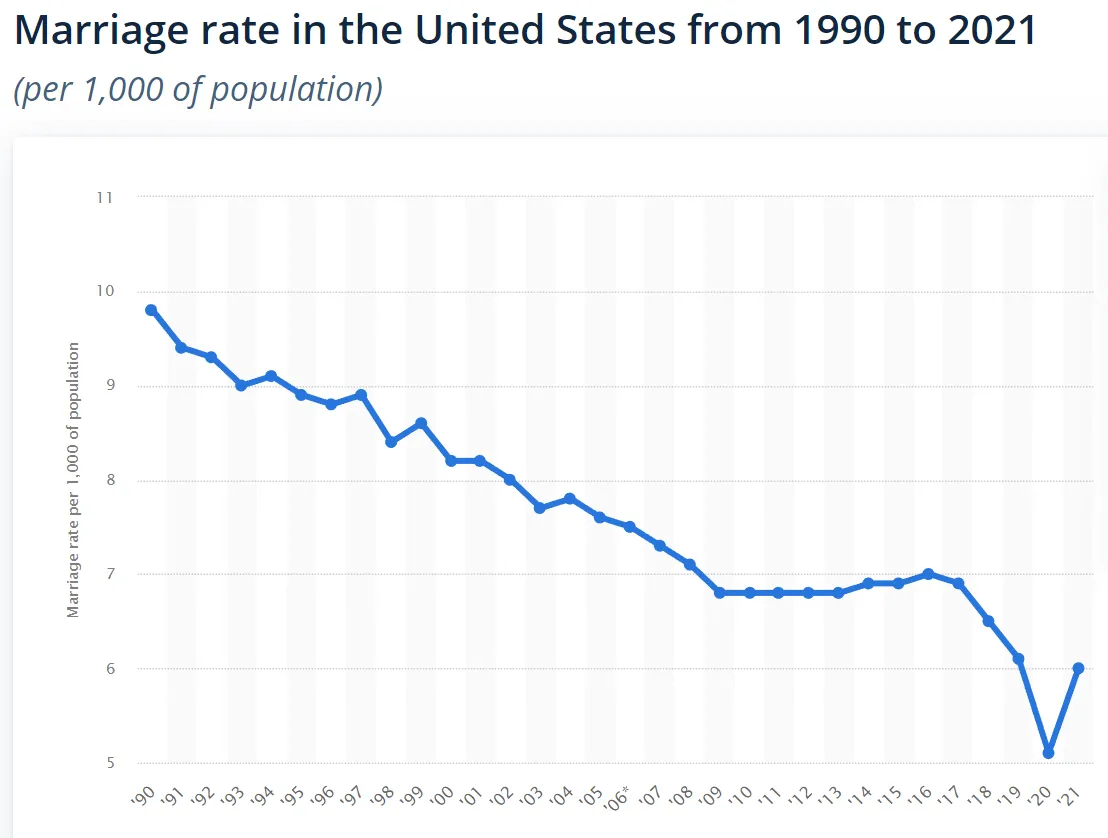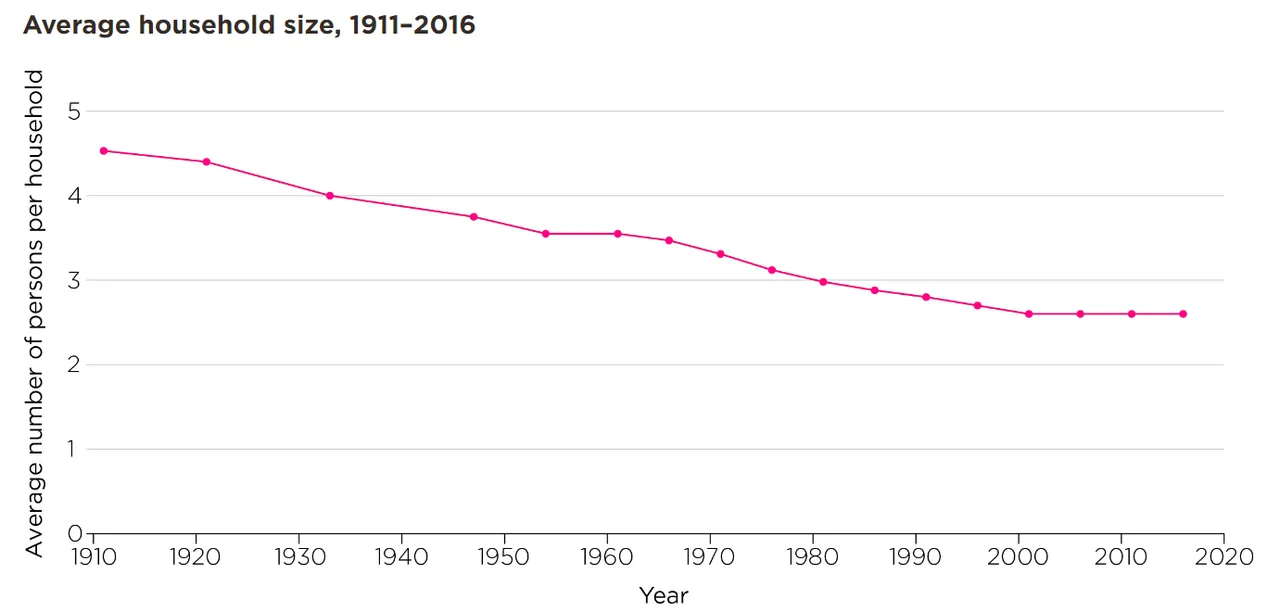Over the last couple years, I have been reading articles from Australia and other parts of the world about housing crises, where there aren't enough houses to meet the demand. There are multiple reasons for this, like investors buying and turning them into short-term rentals or leaving them empty and new builds falling through before completion due to supply chain price increases, but there is one that I haven't seen mentioned before, and I wonder what kind of impact it makes.

The handling of the Covid pandemic has obviously had an impact too, because people were locked into homes around the world and still haven't returned to work in the offices at the same rate. This means that there is more demand for homes that have an office space. However, it has also had a big effect on couples, where once people spent more time at home with each other in unsuitable work environments, they realized, they might not be that suitable after all. This has led to breakups, meaning that one couple home turns into the demand for two single homes.
Now, divorce rate isn't a good measure for calculating this, because there is an increase in cohabitating couples, where people are unmarried, but living together and having families too. This means that while the splits through divorce have a paper trail, the splits of unregistered couples is far less transparent.

And looking at this chart from the US on the rate of marriage, we can see that the trend is clear, with the uptick at the end likely coming from those who put off getting married until lockdowns were eased, because you know, they wanted to have more than ten people at their wedding. But what this means is that while populations are growing, the amount of people living together is decreasing, so the household size is reducing on average, putting more demand on the number of houses.
Covid likely impacted on this and will likely have far ranging effects too, as during the lockdowns, people weren't meeting as often and were less likely to find lasting relationships. This also has cultural impacts that lead away from cohabitating relationships also, where people want to keep their space and commitment is reduced. Then, there are all the people working from home still, meaning that a new couple would need to move into a home that caters for potentially two people to work their simultaneously. As I have said before in other regards though, Covid isn't to blame for this, it just further catalyzed and amplified cultural shifts.
There have been other cultural shifts in this regard too, where for example, people complain about the price of housing in respect to that of the past. However, the financial look at things isn't the only factor to compare, because when those boomers were building and buying homes, they had a different expectation of what a house needed to be. The shift has meant that the size and standards of the homes has changed also, with people expecting much more from it, rather than enough of a place to raise some kids and watch some TV. Home theaters and gaming rooms, as well as entertaining space that they don't use, because they have no friends, are common.
This doesn't just increase the price of the top-end homes, it drags the value of all the rest up with it, because that is how comparative evaluation works, it is all relative. This means that the prices of homes is increasing, because what people believe is required from a home, even though the average family size is decreasing. This also puts a change in what is demanded in single-person homes too. So, in some way, yes, the younger generations are also to blame for the price increases, which then also means they have to borrow more to get what they want. driving prices up further.
Save water, shower together.
A silly joke perhaps, but there is also some sense to it when applied to housing. Living together saves money, but it also saves houses. The more cohabitating couples there are, the less demand there is for housing, and the more chance there is for people to own a home, as two salaries can be combined for the purchase. This has a generational effect too, because it means there is a family home in the future, something that can be passed down.

Looking at the size of households in Australia over the last 100 years or so, we can see how much things have changed. However, there is something else to consider here in terms of housing demand too, because when a couple split up who have children, they generally each won't move into a studio apartment with one bedroom, they will move into a place that allows for their children to stay with them comfortably. That means another bedroom, perhaps two. This means that two family homes are demanded, where it was previously one, prior to a relationship split.
Culture is changing and culture is driven by us, the people. However, it is also incentivized and influenced from external forces and there are going to be tradeoffs, opportunity costs to every action we take. While people are loving the "freedom" of not committing to relationships, it is likely that this is one of the reasons that is driving housing price inflation too, as well as other factors. As people have more options to leave relationships, as well as mechanisms to support the chances of it happening, this too will affect the demand on housing.
A friend of mine was saying the other day that he has trouble buying some food items, because they go bad before he has a chance to eat them, because they are too big - made for families. He is welcoming the shrinkflation on product size, because he doesn't have to throw as much away. A family now however, has to buy two packs, where they were buying one - which increases the packaging material and the overall cost. This is analogous to what is happening in the housing markets too, where more packets need to be bought, in order to satisfy the needs of the demographics.
And, just to finish up, we also have an aging population globally, where housing is needed to cater for people who are living longer. Older people are also healthier than they were and are able to be independent longer also, and the culture is gone where grandparents live in the same house as the family. Again, changing cultural practice increases demand on housing, where for example in places like Finland, many new buildings are serviced apartments, built for retirees in mind.
There are many factors involved in the shrinking supply of housing, but I suspect that a lot of it is cultural, rather than actually an economic problem alone. The shift in the way we live as households has been rapid, as has what we demand as entertainment takes focus and we are living more complex lives as a result. The "picket white fence house" dream of the past has been replaced by a massive range of options, that completely shifts the way we live our lives at just about every level of society and, there are going to be impacts that will take a long time to find new equilibriums.
Because culture keeps changing and less and less incentives for being committed to each other and building a family, I suspect the demand on housing is only going to get worse. At least for a time. With falling birthrates, eventually there will be an oversupply of homes again, because in the rush to build houses for individuals, less of those individuals will start a family and when they die, there will be no one left to fill the housing void.

When communities fall apart, eventually the houses crumble too.
Taraz
[ Gen1: Hive ]